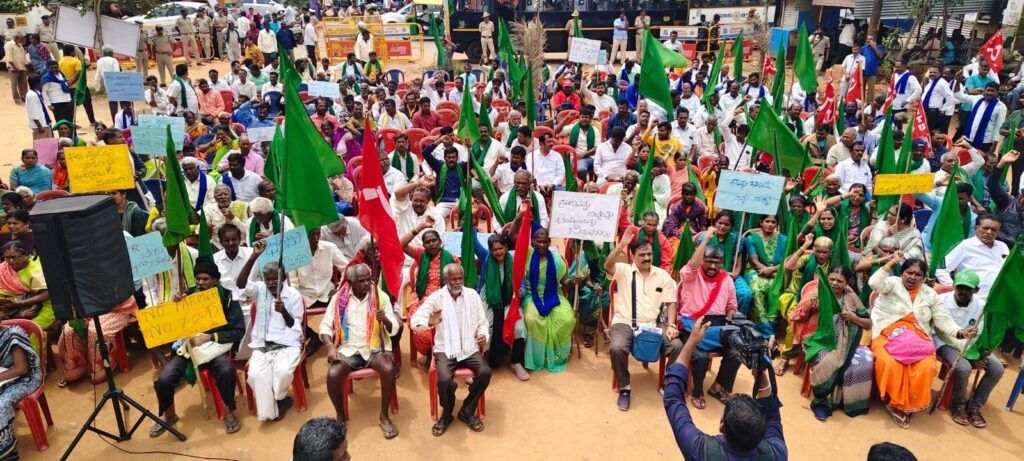After 1,198 days of relentless protest, farmers in Devanahalli—just outside Bengaluru in southern India—have won a major victory. This week, the state’s Chief Minister announced the cancellation of a controversial plan to acquire 1,777 acres of fertile farmland for an aerospace park. The decision marks the end of a three-and-a-half-year struggle led by local farmers and land rights activists.
The proposed development, near Kempegowda International Airport, was part of a broader effort to expand Karnataka’s aerospace sector. But for farmers who have cultivated this greenbelt region for generations, the plan threatened their livelihoods, food security, and deep-rooted connection to the land.
“We have completely dropped the notification to acquire the 1,777 acres,” the Chief Minister stated, clarifying that any future land acquisition would involve only voluntary contributions. Farmers who do offer land will be compensated above market rates and given a share of developed plots.
While reiterating the state’s commitment to industrial growth, the Chief Minister acknowledged that it cannot come at the expense of communities that depend on agriculture for survival.
Strength in Solidarity

The protest stood out not just for its duration, but for the broad coalition it mobilized—uniting local farmers, unions, activists, artists, writers, and public figures.
Over 72% of affected landowners had formally opposed the acquisition. The land supports a wide range of crops including millets, vegetables, mangoes, grapes, and flowers, along with dairy and silk production. More than 6,000 people rely directly on this local agricultural economy, with few viable alternatives for employment.
Protesters also pointed to the disproportionate impact on marginalized communities: 386 families—many from historically oppressed groups—would have been rendered landless according to reports. Previous land acquisitions for airport and industrial projects had already displaced many in the area, pushing them into poverty. This latest proposal, they warned, would worsen both social inequality and environmental degradation, threatening local water bodies, air quality, and public health.


Urban Expansion at a Cost
The Devanahalli case reflects a broader pattern playing out across Bengaluru’s rural fringes. Real estate development is rapidly converting farmland into gated communities, high-rises, and industrial zones. Traditional agricultural livelihoods are being dismantled, replaced by informal labor and short-term land deals that offer no lasting security.
According to reports, more than 35% of farmers in North Bengaluru have sold their land over the past two decades. The results are sobering:
- 34% of displaced households remain unemployed
- Only 17% secured formal jobs
- The remainder rely on irregular, low-paid work
Soaring land prices and a rising cost of living are driving many into debt or forcing them to sell ancestral land at undervalued rates. Meanwhile, the environmental costs of unchecked expansion are mounting—loss of biodiversity, increased flood risk, and declining groundwater levels.
Observers say the Devanahalli struggle has brought much-needed attention to the plight of displaced farming communities—and that makes this victory all the more significant.
“It’s a rare and powerful reminder that when communities organize and resist for food sovereignty, they can reshape the trajectory of development,” said farmer leader Chukki Nanjundaswamy of the Karnataka Rajya Raitha Sangha, which supported the movement. “The very concept of development needs to be redefined. True development must include farmers and agriculture—and empower us, not impoverish us.”

